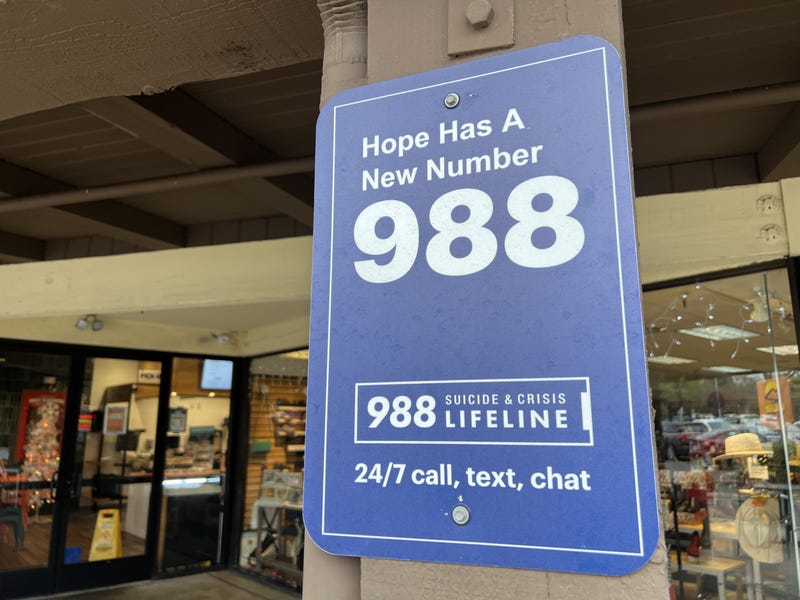
On Thursday, LGBTQ+ youth in the United States lost a suicide lifeline due to federal cuts.
"That message of 'You're not important' is going to be screaming loud and clear," said Joey Trine, licensed clinical counselor and therapist at Thriveworks in Aurora, Illinois.
First established as a pilot program in 2022, the 988 Suicide & Crisis Lifeline's "Press 3 Option" connected callers with counselors trained to support young LGBTQ+ people.
It's a service Trine said was essential for these individuals, who, according to the Trevor Project, face disproportionately high rates of suicide risk.
"These are individuals who may not have a sense of community and support in many other areas of their life," Trine said. "Having skills and people available to you that are specific to help you feel that support and know what you need because you're lacking it in those other community resource areas is so vital."
Since its launch, 988's specialized service for LGBTQ+ youth received nearly 1.5 million calls, texts and online chat messages, according to data from the Substance Abuse and Mental Health Services Association (SAMHSA), which oversees 988.
Trine regularly works with queer youth and said the sudden elimination of this resource could have devastating impacts.
"If you find somebody who's calling the 988 number, and the person on the other line isn't equipped and happens to not know how to engage that person or find them resources, that has detrimental effects on the caller and the representative who's trying to help," she said.
This, she said, makes accessing mental health care even harder for LGBTQ+ youth, who already face barriers to accessing care. The Trevor Project reports that in 2024, half of LGBTQ+ youth who wanted mental health care were not able to get it.
It also further perpetuates stigmas this population faces when it comes to seeking this sort of care, Trine said.
"If they don't have the tools to help deal with those judgments and those misunderstandings, those stigmas are going to be perpetuated, and there's going to be a continued increase of the LGBTQ+ population needing help," Trine said.
And as the mother of a transgender child, Trine said she knows personally how these judgments can impact the daily lives of queer youth.
"This administration, this political climate, regardless of people's swaying, has, for the first time, made it feel unsafe for my kid to just exist," she said. "That, to me, is the hugest part, is that we're creating a deeper divide in feeling safe just expressing who we are, and that's terrifying."
And while this specific service is going away, Trine reminds people that the 988 number is still active if they need support.
She also encourages folks to seek out local resources.
"Focus on what's within your control, what's within your local community," she said. "Even if the federal government isn't funding it, we the people, can find ways to support one another."
You can find SAMHSA's 988 hotline here.
